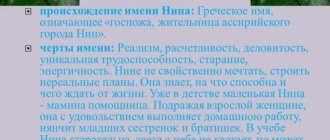The meaning of the Sacrament of Wedding
Man and woman represent two images of human existence. Marriage is blessed by God so that a man and a woman complete each other and grow together in carnal and spiritual communion: “A man will leave his father and his mother and cleave to his wife; and the two will become one flesh” (Gen. 2:24). A wedding is one of the church sacraments - a sacred rite in which the Lord himself invisibly participates. In this sacrament, the marriage union is blessed by God and the Church. Spouses are given grace for living a Christian life together. The sacrament is of great importance, so there are special rules when you can get married.
Sacrament of Wedding
“Where husband and wife and children are united in harmony and love by the bonds of virtue, there is Christ in the midst” (Works of our holy father John Chrysostom, Archbishop of Constantinople. Vol. 4).
The holy righteous John of Kronstadt in his “Parting Word to the Newlyweds” points out that spouses become “animate instruments of Divine goodness and omnipotence.”
Orthodox Life
Answered by priest Andrei Chizhenko.
The Sacrament of Marriage, or wedding, is not just a beautiful ceremony. According to the work “Long Christian Catechism of the Orthodox Catholic Eastern Church” by St. Philaret (Drozdov), “marriage is a Sacrament in which, with the bride and groom freely promising mutual fidelity before the priest and the Church, their marital union is blessed in the image of the spiritual union of Christ and the Church and grace is given pious unanimity for the legitimate birth and Christian upbringing of children." To put it simply: you still need to grow up before the wedding. As we see from the definition of the above-mentioned Sacrament, “the marital union is blessed in the image of the spiritual union of Christ and the Church.” And to understand this, you need to be an active member of the Church, to be enlightened by the grace of the Holy Spirit in Her other Sacraments: Baptism, Repentance, Communion of the Body and Blood of Christ. It is important to regularly attend worship services and desire the salvation of your soul.
In the highest sense, one must love God and His Church more than anything else in the world and, in union with one’s spouse, see the end result of marriage: the creation of a small church from the spouses and their future offspring, which, being part of the Orthodox Church, will be saved and enter the Kingdom of Heaven for the eternal pleasure of the Lord God. That is, the Sacrament of Marriage is a form of union with Him blessed by the Almighty. And if people who are going to get married do not want to unite with God, then they will face serious trials, and perhaps even disasters. This is confirmed by all those people standing under the bishop’s offices and wanting to get a church divorce. A misunderstood goal leads to wrong results. And the main goal of the Sacrament of Marriage, as we have already said, is the marital union in the image of the spiritual union of Christ and the Church.
Based on this, in the ancient Church the Sacrament of Marriage was celebrated immediately after the Liturgy. And now, according to the Church Charter, this is very desirable. The bride and groom confessed and received the Holy Mysteries of Christ during the service, and then the wedding ceremony took place. This is a sign that those getting married should ideally already be deeply church-going people who know what confession and communion are. And the Church Charter tells us that immediately before the wedding, or at least a few days before, the bride and groom must confess and receive communion in order to enter into a marriage union, pure, bright, united with God, from which the Lord, through a clergyman, will create a small church and bless the future offspring of this wedding couple.
If the bride and groom are already churchgoers, they should know that in the liturgical life of the Church and in the everyday life of individual Its members there are periods when food fasting is imposed on an Orthodox Christian and the so-called marital fast (a ban on intimacy for husband and wife), as well as a ban on various types of entertainment and entertainment. This is not done to infringe on human rights, but so that people, having practiced fasting and prayer, which, according to the Gospel word, are means for casting out demons (see Matthew 17:21), will thin their body, making it an obedient collaborator for the soul in the matter of salvation. During these periods of fasting and some holidays, the Sacrament of Marriage cannot be performed.
What are these periods?
1. Tuesday, Thursday and Saturday. The eves of Wednesday and Friday, on which we remember the passion of Christ. Saturday is the eve of resurrection, Little Easter, when we remember the Bright Resurrection of Christ.
2. September 10, 11, 26, 27 - the eves of the feasts of the Beheading of St. John the Baptist and the Exaltation of the Precious and Life-Giving Cross of the Lord. And the days of these holidays themselves.
3. The eves and days of the great twelve holidays, great holidays, as well as patronal feasts for one or another temple (in the latter case, the Sacrament of Marriage can be celebrated in another temple).
4. Four big fasts: Great, Petrov, Uspensky and Rozhdestvensky.
5. Two periods of the year associated with the Nativity of Christ and Easter, when these holidays are celebrated for several days: Christmastide (the period from the Nativity of Christ to the Epiphany: January 7 - January 19) and Bright Week - seven days after the Resurrection of Christ.
6. You also cannot get married during the last preparatory week before Lent, called Cheese Week (popularly known as Maslenitsa).
However, in certain purely individual cases, when considering the case of the bride and groom who have applied to him, the Ruling Bishop of a particular diocese may make exceptions.
The Sacrament of Marriage contains many liturgical elements associated with the Divine Liturgy, the main service of the Orthodox Church. And crowns on those getting married are a symbol of the fullness of God’s grace, which will henceforth rest on the married couple and their family. Take care of this, dear brothers and sisters! And just as in the Sacrament of Marriage you stand facing the altar, the open Royal Doors, through which the Throne of God is visible, so live: moving towards God - into the Kingdom of Heaven. This is the main essence of the Sacrament of Marriage.
Not just a beautiful ritual, but a church Sacrament
Newlyweds and their relatives need to understand the true meaning of a wedding. This is not just a beautiful ceremony, but a church Sacrament. This is a joyful, but requiring a responsible approach, spiritual event of a special meeting between man and God. It determines the subsequent life together of young people. A frivolous attitude towards the sacrament of Marriage is blasphemy.
Archpriest Andrei Tkachev, in a conversation about weddings and divorces, said:
“We turned the wedding into a beautiful ceremony: a rented limousine, a doll on the hood, hired services of a photographer and cameraman, scattering rice and sweets along the road, a feast. All this takes up the lion's share of preparations for the wedding... And a year later we come to the priest who married us and say: “We should get a divorce and get married.” A wedding is too serious a thing to fool around with like that.”
Priest Fyodor Lukyanov noted in one of the broadcasts of the Soyuz TV channel:
“There are very few divorces among church-going couples. Divorces occur among those who perceived it as a beautiful, magnificent ceremony, did it rather as a tribute to some fashion or prestige, but not as an internal, spiritual action that is necessary for a husband and wife.”
Wedding on Saturday, marriage contract and divorce “in a Christian way” – discussed by priests of PSTGU
The decision of the hierarchy to develop a document on church marriage, the need for which has long been overdue, evokes joy and gratitude, as does the opportunity to take part in the discussion of the draft of this document. However, it should be noted that the proposed project needs significant improvement.
First of all, it is striking that the title of the document does not quite correspond to its content. The title “On some canonical aspects of the Sacrament of Marriage” would be more appropriate for the text under discussion. The intention of the authors of the document is unclear. It would be useful to indicate at the beginning whether it is intended to cover the topic of marriage in its entirety? But it is impossible to do this in such a short document.
The document does not in any way correlate the practice of the Russian Orthodox Church with other Local Churches, as well as the practices and teachings on marriage of the Catholic Church. For example, nothing is said about the accepted discipline in the Russian Church of performing marriages only on strictly established days, while in the fraternal Orthodox Churches weddings, as a rule, take place on Saturday and weddings are allowed during periods of fasting. This raises questions for the children of the Russian Church who are faced with similar cases.
Perhaps these strict norms should be reconsidered in the spirit of oikonomia, because... the prohibition of getting married on the Sabbath is not taken into account by a huge number of people due to the difficulty of arranging a wedding on another day?
Is the topic of “prenuptial agreement” necessary?
It is surprising that a document devoted to such an important church issue has only two or three phrases as a theological introduction, which, moreover, uses very vague formulations, which can hardly be acceptable in the doctrinal part of the text.
For example, in the very first sentence of the document, the concept of a “union” of a man and a woman is introduced, which God supposedly established in paradise. But in the text of Holy Scripture such a concept is not used. It says that “the two will become one flesh; so that they are no longer two, but one flesh” (Gen. 2:24; Matt. 19:6; Mark 10:8). Obviously, the word "union" can be interpreted in a wide and ambiguous way, and therefore, when using it, it is necessary to explain what is meant.
The formulation of the goal of Christian marriage as “the joint achievement by spouses of indestructible unity with Christ in His Everlasting Kingdom” obviously cannot be used specifically for marriage, given the Savior’s call to all who believe in Him, and therefore to the celibate and monastic: “Let all be one, just as You, Father, are in Me, and I in You, so that they also may be one in Us” (John 17:21).
Photo from hristiane.info
The phrase of the preamble: “The Christian life of spouses presupposes the cultivation in love of the gift of grace received in the Sacrament of marriage, which is manifested, among other things, in childbearing and the joint work of raising children” should be considered vague and unclear. After all, children are also born and raised in a non-Christian marriage.
The phrase “Marriage presupposes the open expression of the will of a man and a woman, as a result of which rights and obligations arise in relation to each other, as well as to children” does not quite adequately convey the legal side of marriage.
The emergence of rights and obligations is more likely to be associated with the conclusion of a contract, rather than with some vague “open expression of will.” However, it is unclear to what extent the topic of the “nuptial agreement”, especially important for Catholic teaching on marriage, should be discussed in the presented document on the Orthodox understanding of “church” marriage?
By quoting from the Epistle to Diognetus that in the first centuries Christians “married in the same way as other subjects of the Roman state,” the document rather misinterprets the meaning of the quoted text and risks leading the reader to the conclusion that originally “ecclesiastical marriage” didn't exist at all. The original Eucharistic dimension of Christian marriage, professed by Orthodox theology, is being completely forgotten.
"Prodigal cohabitation." Once again about terms
It is obvious that the document should clearly distinguish between the pastoral approach to practicing Christians and to those who are just seeking to begin their churching, which is especially important in cases where people newly coming to the Church are in prodigal cohabitation.
The topic of the Church’s attitude to “prodigal cohabitation” is one of the most pressing in modern church life. Modern Russian legislation does not use the concept of fornication and does not condemn illegal cohabitation. In European countries and America, illegal (i.e., prodigal) cohabitation between men and women (and now same-sex cohabitation) is recognized by many people and the state as the norm.
In this regard, in Russia, the importance of legal registration of marriage in the eyes of the younger generation is inevitably decreasing. The Church certainly must respond to this trend, which is constantly intensifying in connection with the processes currently taking place throughout the world, and not just in our country.
Unfortunately, this issue was not discussed in detail in the proposed draft document. Prodigal cohabitation by modern unchurched youth is often called “civil marriage” and is perceived as the norm, and every priest faces this situation almost every day. It seems that, with all the strictness of church canons, the pastor must treat such people informally in each specific case, bearing in mind the missionary concern for attracting the lost to repentance and churching.
It is necessary to distinguish the motives of people involved in fornication. There are people who in this way try to find their way to a true marriage, having sincere love for each other. Others cohabit to satisfy sexual needs. Finding a path to admonition and spiritual healing presupposes paternal condescension towards the “prodigal son” and a careful attempt in each individual case, through churching, to “transform” prodigal cohabitation into a church marriage.
The position of the Church in such situations and the possibility of applying canonical norms in modern life would be very important to formulate, discuss and explain in detail, because The current practice in churches often makes one think that the priest is not at all familiar with the Orthodox canons. A more detailed presentation of the pastoral approach to this problem would significantly enrich this document.
Divorce “Christian style”
The document also did not provide sufficient clarification on the question of the Church’s attitude towards marriages of Christians with non-Christians. The document calls for “showing pastoral leniency” towards persons married to non-Christians – and nothing more. However, church canons strongly condemn the deliberate marriage of a Christian woman to a non-Christian, subjecting such “Christian women” to lifelong excommunication. The document needs to pay more attention to these increasingly common cases.
The document does not sufficiently elaborate the section on preparation for the Sacrament of Marriage, while such preparation, in essence, very often has the meaning of catechesis and should unacceptably be performed by a priest instead of formally marrying everyone indiscriminately.
The document does not define the concepts of “divorce” and “dissolution of marriage”.
The statement about the “termination of a marriage” in the event of the “natural death of one of the spouses” is decisively at odds not only with the Orthodox teaching on marriage, but also with the prayers of the ceremony of marriage, for example, with the prayer “The Sequence of Betrothal,” which speaks of “an indestructible union of love.” .
Considering the illness of one of the spouses with AIDS and other diseases as a “reason for divorce” in the light of modern medical advances may require reconsideration. The point about “falling away from Orthodoxy” as “a reason for divorce” needs clarification. It is necessary to clearly formulate what is meant by “falling away.” The very concept of “reason for divorce” needs the same explanation: does it mean that a person can get a divorce in such a case, or is he obliged to do so?
The phrase “The decision on divorce is made in the diocese” is at odds with the already established practice, when the Church, represented by the bishop, testifies that the marriage has broken down, and this is noted in the corresponding formula of the certificate issued. The Church categorically cannot accept the adoption of a “decision on divorce,” which would be direct opposition to the words of the Savior: “what God has joined together, let not man put asunder” (Mark 10:9).
Unconvincingly and without taking into account the unrepealed norms of the Synodal period, the issues of registered but not married marriages, age limits for those entering into marriage, and when a married marriage is declared invalid are considered. No clear indication is given in what exact cases the “rite of second marriages” and “the rite of wedding of spouses in the many years of existence” are applied. The text does not evaluate the increasingly widespread practice in the West of considering same-sex cohabitation as legal marriage. There is no important reminder that “abomination of marriage” is heresy.
The text says nothing about the marriage of clergy, who are called upon to demonstrate the ideal of Christian marriage. Also in the document, the most important topic in the doctrine of marriage, childbirth, is practically absent. In particular, nothing is said about the attitude of the Church to the conscious refusal of childbearing in marriage and whether it is possible to perform the Sacrament of marriage on persons who understand marriage as a means of satisfying their sexual needs, but do not consider it necessary to burden themselves with the birth of children.
In such cases, the commandment of God “be fruitful and multiply, and fill the earth, and subdue it...” (Gen. 1:28), which is certainly connected according to God’s plan with the married life of a person, is completely ignored, which hardly allows us to consider such a marriage Christian.
It is unclear from the text of the document whether the proposals on the topic of marriage prepared by the Commission at the Holy Synod of the Russian Orthodox Church to develop a catalog of topics for the Pan-Orthodox Pre-Council in 1968 were taken into account when preparing it.
Previously, the idea was expressed that the development of such a document should be preceded by serious work on the codification of marriage law and a discussion of related pastoral and canonical issues. A dogmatically verified formulation of the Orthodox teaching on marriage is needed, the absence of which makes the document unfounded and contradictory.
I would like to hope that this undoubtedly valuable and promising discussion will allow us to further develop an authoritative church document and streamline pastoral practice in matters of church marriage, which is especially necessary at the present time.
When not to get married
On what days can you not get married? According to the statutes of the Russian Orthodox Church, the sacrament of Wedding is not performed during the period of Lent, on Easter, on the eve of the twelve feasts and Sunday (Little Easter), so that the pre-holiday evening is not overshadowed by wedding fun and bustle.
They also do not get married on Tuesday and Thursday, so that the wedding night does not fall on a one-day fast on Wednesday or Friday. The wedding does not take place on the day of the patronal feast of the church. There may be exceptions to these rules, but only with the permission of the bishop. It is not prohibited, but it is undesirable to get married on the days of the twelve holidays and during continuous weeks. All these instructions are dictated not by superstitious fears, but by church discipline.
What are the restrictions on fasting before a wedding?
Fasting involves a complete abstinence from any animal products : meat, fish, fish roe, eggs, dairy products, butter, cheese, and so on. You should also exclude any alcoholic drinks. An exception is made for Cahors, which is used to give communion to parishioners in church.
During long fasts, such as Great Lent, it is allowed to eat fish, but for a short three-day restriction it is better to do without it
Still, the purpose of such abstinence is, first of all, spiritual cleansing .
What you can eat during fasting: any food of plant origin, for example, cereals, vegetables and fruits, berries, mushrooms, nuts, and so on. It is important to understand that restriction is not just a refusal of meat and other things, but also abstaining from overeating . You need to eat modestly, not allowing yourself excess.
Post before the wedding
How to fast on the eve of a wedding? In addition to not eating meat and dairy foods, fasting involves humility and turning to the spiritual . It is worth refraining from intimacy, entertainment events, and turning to reading prayers and holy books.
Wedding Day
What days can you get married? Traditional dates for weddings include the non-twelfth feasts of the Mother of God. For example, October 14 (day of the Intercession of the Most Holy Theotokos), July 21 and November 4 (days of the Kazan Icon of the Mother of God). However, it is important that these days do not coincide with the Tuesday, Thursday and Saturday mentioned above. Also a popular date for performing the sacrament is the first Sunday after Easter (Red Hill Day). On what days can you get married? The most suitable days for a wedding are Monday, Wednesday, Friday and Sunday.
An Orthodox Christian should avoid a superstitious attitude towards the wedding date. For example, the Day of the Intercession of the Blessed Virgin Mary is often considered a “lucky” date, guaranteeing a happy family life for newlyweds. However, these popular ideas have no ecclesiastical justification. Getting married on the Feast of the Intercession is not prohibited (if it does not coincide with “forbidden” days), and one can reverently hope for the patronage of the Mother of God. However, there is no need to attach a magical character to this.
Read us conveniently on social networks:
Tags: on what days do people get married in church, on what days can they get married, wedding day, when is the best time to get married, when can they get married
The most beautiful permitted wedding dates in 2022
In December and April, which fall during Christmas and Lent, the wedding calendar for 2022 does not provide any permitted dates at all. In other months, newlyweds will be able to choose:
- in January, the palindrome date falls on Thursday, leaving the ones closest to it - 01/20/21 and 01/22/21;
- in February there are no palindromes, but there is a whole series of beautiful numbers - 02/01/21, 02/10/21, 02/12/21 and 02/22/21 (even those who do not believe in numerology will like this combination of twos and ones);
- in March - 03/01/21, 03/03/21;
- in May - after Krasnaya Gorka: 05/10/21, 05/21/21 and 05/30/21;
- in June - 06/02/21, 06/06/21, 06/11/21, 06/20/21 and 06/22/21;
- in July - starting from the middle of the month: 07/12/21, 07/21/21, 07/30/21 (but the day of the patrons of the family of Peter and Fevronia - July 8 - falls on the fast);
- in August - 01.08.21, 02.08.21, 08.08.21 and after the Assumption Fast - 30.08.21;
- in September - on the Day of Knowledge 09/01/21, then after the day of the beheading of John the Baptist - 09/19/21, 09/22/21 and 09/29/21;
- in October - 10/01/21, 10/10/21, 10/11/21, 10/20/21, 10/22/21 and 10/31/21;
- in November, the most beautiful date is 11/21/21, but there are three more options - 11/01/21, 11/10/21 and 11/12/21.
There are no rational reasons that a wedding these days will have a favorable effect on the life together of a young family, but the dates look impressive.










